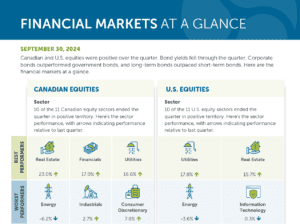Vanguard: 60/40 Portfolio Down but Not Out

Even with its recent drubbing, the allocation’s longer-term performance isn’t far off trends, according to Sheridan. If the 60/40 portfolio had ended down 17% on Tuesday, the annualized return for the previous four years would be 6.5%, right below the portfolio’s historical average, he said.
The 60/40 portfolio wasn’t designed for short-term moves, according to Sheridan, who noted that Vanguard expects the longer-term negative correlation between stocks and bonds — with returns moving in opposite directions — to stay in place.
“There is good news in this rising interest rate environment,” Saracino said, citing attractive yields across fixed income segments. “We don’t know for certain when the pain is going to be over,” whether it will be days, weeks or months, but current yields are “very attractive,” he added.
Indeed, while bonds have dragged down returns for the 60/40 portfolio, it’s easier for them to pull their weight now that interest rates have moved higher, Sheridan noted.
The Federal Reserve’s tightening monetary policy aims to help fixed income assets produce returns that exceed inflation, which should provide a longer-term benefit, Saracino said. Investors who want to take a credit risk should note that U.S. investment-grade corporate bonds are yielding close to 5% right now, he added.
International stocks present both an opportunity and a risk for investors, Sheridan said, suggesting that a 20% to 30% allocation within a portfolio’s equity holdings is a “really, really good place to be,” although it’s a tough conversation for financial advisors to have with U.S. clients. (Vanguard has taken a 40% strategic allocation in international stocks within equities.)
A shift toward value stocks and away from growth equities also might make sense now as investors favor near-term versus distant cash flows — another opportunity and risk — Sheridan said. With unexpected inflation wreaking havoc across asset classes, the odds may favor value outperforming growth, although “at some point, you’ll have to move back to growth,” he added.
Or there’s an easier option: keeping a balanced approach and focusing on client tax strategies and alpha rather than shifting back and forth and “opening doors for bad mistakes to occur,” Sheridan said.
Vanguard now sees a greater than 50% chance that the U.S. economy will experience a recession next year, according to Saracino, who predicted it will be akin to the relatively mild and short recession after the dotcom bubble burst. He said he wouldn’t recommend that investors do anything based on Vanguard’s forecast for an economic slowdown.
(Image: Shutterstock)




